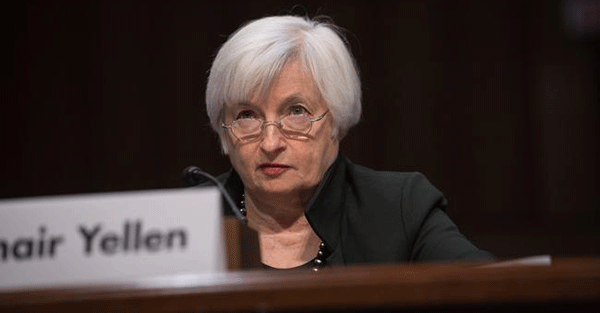
Raghuram Rajan: Why RBI needed more of him … Finally, Prime Minister Narendra Modi spoke up to give outgoing RBI governor Raghuram Rajan a thumbs up. The endorsement that came a wee bit too late was welcome nevertheless … – India.com
With economies worldwide in a mess, the mainstream media is increasingly concentrating on individual central bankers.
This is propaganda, of course.
Instead of having to deal with the failure of central banking as a system, the media can direct attention to individual central bankers and ask whether they are “up to the task.”
In fact, central banking is price fixing – of money. Price-fixing never works and eventual results in catastrophic failures.
By focusing on the individual in charge of a given central bank, the mainstream media redirects our attention.
We are supposed to stop wondering whether the system is a failure and instead try to figure out whether the individual running a given central bank is competent.
Rajan is a good example of this sort of approach.
Since he resigned, there have been a number of commentaries in the Indian and Western media expressing disappointment.
With his astute handling of the affairs, he helped modernize India’s central bank, controlled inflation, assured investors that India was a good place to put money and made banking sector more competent with introduction of more players.
His superlative performance at such a sensitive time is a snub for those who alleged that engineers and CAs can’t be good economists … It is not without reason that the World Bank chief has called India as bright spot in the otherwise morose world.
… As for the future, one can only hope that another equally competent person will take charge and keep the economy safe. Raghuram Rajan’s parting line of communication about being “available to serve” the country gives us hope. Probably, we will see him back in some other influential position in the North Block!
This article, as we can see, has all the elements of central bank propaganda.
India’s economic performance was in the hands of one man. Since he has left, India must search out someone else just as competent.
If such competence is not to be discovered, than the Indian economy is in danger of slumping.
It is a clever equation. The onus is on the man not the structure. We can see the same mechanics at work in a Reuters article focused on the Bank of England’s chief, Mark Carney.
Some … excoriated [Carney] before the June 23 referendum for warning of the economic risks of leaving. Their best bet now would be to woo him, rather than to undermine or dislodge him.
The central bank is a pillar of stability at a time of huge turmoil. Britain is in uncharted waters after voting to end its four-decade membership of the European club, and is politically rudderless to boot.
… To be fair, Boris Johnson, a leading campaigner for Britain to leave the EU … has already tried to mend fences. He said on June 26 Carney had done “a superb job” and that the central banker would be able to continue without coming under political fire now that the referendum was out of the way.
This is a high endorsement indeed. Carney is portrayed in the article as so important that he ought not to receive criticism.
If he is made to feel uncomfortable, he may depart before his “tentative 2018 departure date.”
Across the pond, Janet Yellen is subject to the same sort of treatment.
A US News and World Report post labeled her “The Most Important Person in 2016 – Forget the Presidential Candidates.”
The idea here is that Yellen would be responsible for raising rates or not and the US economy would either benefit considerably or suffer catastrophically as a result.
For all the hoopla and breathless coverage that’s sure to come, 2016’s most important political player won’t be on the campaign trail. She’ll be heading up America’s central bank.
…The question now for Yellen and the rest of the central bank’s board is what comes next. Its answer will not only determine the course of the U.S. economy, but could very well affect who steps into the Oval Office after President Barack Obama takes his leave.
Once again, we see the issue is not that Yellen has the power to influence a $4 trillion economy but whether or not she will use her enormous power well.
By making central bankers into “celebrities” and focusing on their decisions as if they were normal executives of normal companies, the mainstream media adeptly sidesteps the much larger question of how modern economies are organized and led.
Conclusion: When economies are in terrible shape as they are now, the personalities and competence of the individual central banker suddenly takes on new importance. The system itself must not come under fire at any cost.
